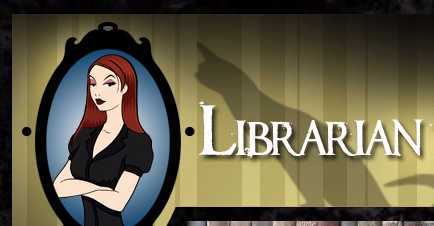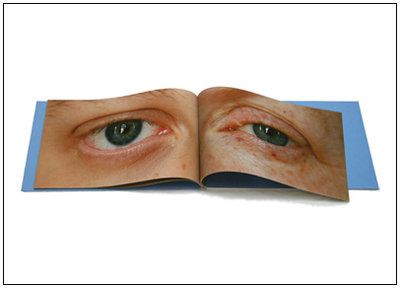
A California librarian is raising her voice about what she sees as issues in Amazon’s new program for checking out library ebooks on a Kindle. “I’m very, very disturbed about the new Kindle lending practice that Overdrive has implemented,” she explained Tuesday in an impassioned, 10-minute video online. “It’s a new service. It’s something a lot of libraries are very excited about, and with good reason.
“But there’s a lot going on here that I think library staff are not necessarily aware of or have really thought through.”
She’s calling on librarians to complain to their Overdrive reps — and directly to Amazon. (To watch the video, point your computer’s web browser to tinyurl.com/LibraryResponse .) Her basic issue is that librarians should always protect their customers’ reading history, but now Amazon’s getting that data on their own servers (which may even violate California’s newly-passed “Reader Privacy Act.”) And she also notes that many libraries have strict policies against endorsing a particular product, whereas Overdrive’s program actually completes their transactions on Amazon.com, including a pitch that urges library patrons to purchase more books. (And there’s even book-buying plugs in your “due date” reminders.)
I’m a big fan of the Kindle — and ebooks — and to be fair, it sounds like she is too. She bought a Kindle last December, and wrote a blog post soon after titled “Why I am a library traitor and love the Kindle.” At the time she noted her issues with the Kindle as a librarian — that e-book sharing was limited, and that library lending wasn’t available. Those are two areas where Amazon has since made some big improvements, and she honestly went back and updated the blog post. It shows that this reaction is coming from a Kindle lover who feels forced to acknowledge that “in our greedy attempt to get content into our users’ hands, we have failed to uphold the highest principle of our profession, which is intellectual freedom. And that’s not acceptable.”
“Kindle has allowed Amazon to harvest all of this borrowing data. So it’s an instant violation of all of our privacy policies…. [I]f they’re using a Kindle, Amazon’s keeping friggin’ everything. And we haven’t told people that, and we need to tell people that. So one thing here in California, particularly, is that recently a state bill was passed, 602, called the Reader Privacy Act, which states that library use and borrowing habits are protected as are our purchases from bookstores and so forth. Basically, you have the freedom to read what you want, and not be penalized for doing so. And it’s, I’m fairly certain, a very grey area right now that Amazon and Overdrive are in, because Amazon is keeping data on what our customers are borrowing and they’re not really supposed to.
So according to this bill, I might be violating state law simply by putting information out there to people in a format that works with their Kindles. And I haven’t told people this in my library. Because how do you tell people, “Well this great device that works really well, and it’s the smoothest check-out process of any device or format that we offer here in the library — but it violates your privacy, it jeopardizes your intellectual freedom, and, you know, it might kinda be against state law, but I’m not really sure.” How do you say that to people?
But I think it’s important for us as library staff to figure out a way to say it to people, because it’s our job to stand up for their privacy and their reading rights, even when they don’t know when that they’re in jeopardy.
Her video has already drawn some interesting comments — and started a discussion about other issues in Overdrive’s program for lending Kindle ebooks. “Another important problem is that they have not adequately addressed accessibility for screen reader users,” one viewer posted. “Kelly Ford explains some of the problems here: Ensuring non-discriminatory access for library users is just as important as privacy and intellectual freedom.”
And another user noted that library lending faces challenges from some other powerful companies. “Not only is Amazon and Overdrive in control but the publishers should get their share of the blame. If a publisher doesn’t want readers to be able to borrow an ebook, it doesn’t happen. For example, MacMillan and Simon & Schuster have opted out of the lending program. Two of the top six. Of course if you are a self-publisher, good luck even showing on the radar. We know something is up when the top ebook authors are missing from a library catalog: Amanda Hocking, John Locke, and Louise Voss, all top ebook authors are missing from my local library’s catalog.”
I think it’s important to remember that this call to action comes from some who’s committed to reading and to books in some very real world situations. Sarah Houghton — the librarian in the video — is the Assistant Director for the two public libraries in San Rafael, California, and she’s also been writing a blog for eight years called the “Librarian in Black”. Over time, she’s gotten familiar with how a library’s mission can benefit from the arrival of new technologies. She works with state and national library advocacy organizations, and she’s on the ebooks task force for the American Library Association’s Office for Information Technology Policy. Libary Journal even named her as a “mover and shaker’ (in their 2009 “trendspotter” category).
If you want to read a complete transcript of Sarah’s video, click here. There’s a little bit of profanity towards the end when she really lays into Overdrive. “You thought, ‘Well, we can tell them what’s going to happen, and they’re going to get mad. Or we can not tell them what’s going to happen, and we can bank on the fact that most of them aren’t going to notice, and the ones who do are probably not going to say very much or be very loud.’
“Well guess what? I’m getting ******* loud!”
To get Amazon’s response, I tried contacting their Kindle-Feedback address, where I received the following response.
Hello,
Thanks for writing about Amazon’s overdrive library lending program.
And I’m very sorry for any inconvenience in this regard. We take these issues very seriously.
I’ve forwarded your message to the appropriate department. Customer feedback like yours helps us continue to improve the service we provide, and we’re glad you took time to write to us.
We look forward to seeing you again.
Thank you for your recent inquiry. Did I solve your problem?
If yes, please click here…

Image of Sarah Houhgton by Peter Martin Jorgensen


